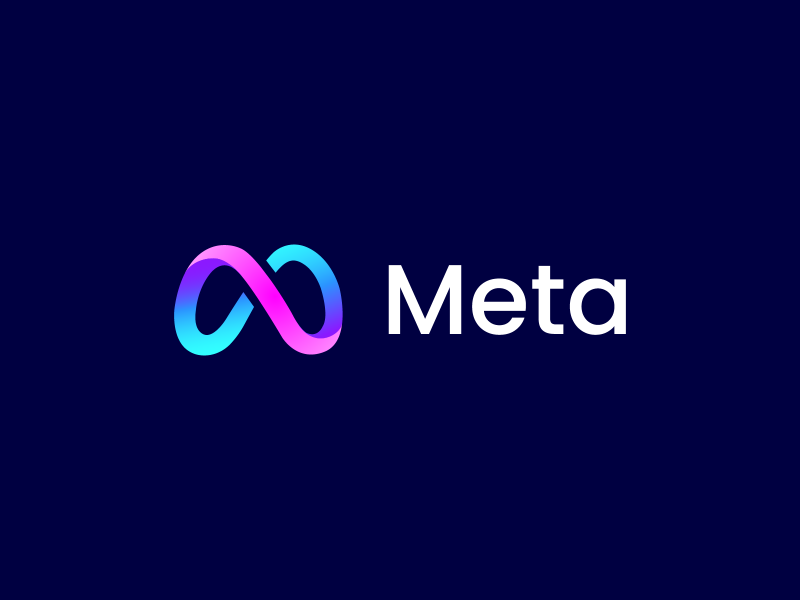The traditional market in the U.S. derailed even further from its recovery track yesterday. All the major averages concluded Thursday’s trading session deep in the red. Having dunked by 3.7%, Nasdaq remained to be the worst affected. Concurrently, the S&P 500 was down by 2.4%, while the Dow solely managed to restrain itself from losing more than 1.4%.
Meta’s tumble single-handedly managed to cause collateral damage. The media giant is essentially the fourth-biggest stock component in the Nasdaq and has a weightage of 5%. After peeling off more than a quarter of its share value in a single day, Meta set off one of Wall Street’s worst drops. In effect, the company erased more than $230 billion of its market value.
Meta’s price tag
Meta’s wallop on Thursday was typically instigated by its discouraging earnings report numbers. The co-founder and CEO of Meta, Mark Zuckerberg, tipped over the fate of the company ever since he announced in October that Facebook was going all-in on the metaverse. Owing to the transition, Facebook was rebranded to Meta, and now, the company intends to introduce people to shared virtual worlds and experiences via the metaverse using different software and hardware platforms.
After betting on the aforesaid developing tech, Meta’s Reality Labs division that makes virtual reality goggles, smart glasses, and other yet-to-be-released products, lost billions of dollars in 2021 as it built its empire.
The net loss for the said segment amounted to $10.19 billion for 2021, a dispirited upward trend when compared to a $6.6 billion loss in 2020, and $4.5 billion in 2019.
As a result, Meta’s cumulative quarterly profits fell by 8% to $10.3 billion in the three months that ended in December from a year earlier, even as revenue rose 20% to $33.7 billion over the same period. The same missed Wall Street analysts’ prediction of $10.9 billion in profits but surpassed their revenue forecast of $33.4 billion.
The vast sea of competition
The loss numbers released yesterday illustrate how rivals such as TikTok and YouTube are gobbling up Meta’s growth. Parallelly, the company now faces competition from other pre-established projects in the new space it has ventured into.
Now, even as Meta’s share price tanked, most of the metaverse tokens from the crypto space have had a pretty good week.
Decentraland, a metaverse platform built on the Ethereum blockchain, has seen the price of its native MANA token balloon up by more than 15% in the past seven days. Likewise, SAND, the second-largest token from this space and one of Decentraland’s upfront metaverse competitors, has seen a weekly uptick of close to 10%. Both these tokens have witnessed evident market cap growths over the past few months, indicating the community’s approval and acceptance of the projects.
However, as far as Meta is concerned, it wouldn’t be wrong to claim that it is being ragged and bullied for taking the plunge. Commentators from the space have not let go of any opportunity to take a dig at the company’s current position.
So, is this the beginning of the end of Facebook?
Well, apart from the unsatisfactory revenue figures, it should be noted that Facebook witnessed a steep drop in daily active users for the first time in its 18-year history. The media giant had never witnessed a fall in the user count figures until now. In the quarter ending in December, the DAUs dropped to 1.929 billion, down from 1.930 billion in the previous quarter.
Marred by competition from rivals, Meta has been dealing with blows in Asia-Pacific and the rest of the world. The company has also been plagued by Apple’s operating system privacy modifications, as a result of which, its advertising revenue has taken a toll.
Things looked even more gloomy on its price chart. Meta witnessed a 173% incline during the initial legs of the pandemic from March ’20 to September ’21. The number of users kept increasing on its platform and the company kept growing.
However, right after its rebranding, the downtrend set foot in October, and yesterday’s 26.4% freefall only made things worse for it.


A few from the space out-rightly claimed that people were not satisfied with the transition. Goes without saying that the not-so-optimistic community sentiment, to a large extent, had a hand in pushing Meta’s valuation down the cliff.
The sentiment transition needs to happen quickly to save Meta’s near-term prospects from getting out of shape even further.
Reality check: Is Meta fit and fine for the Metaverse?
At this point, it has already become clear that the metaverse segment is a long way from being profitable or filling the gaps and making up for the losses incurred by other segments. In fact, Zuckerberg himself acknowledged the difficulties during the call with investors after disclosing the results. However, he also defended the shift toward the metaverse and said his company had weathered challenges before. He stated,
“Although our direction is clear, it seems that our path ahead is not quite perfectly defined.”
Diverting funds into the meta segment and incurring losses is arguably a bold move by the company’s management, keeping the long-term picture in mind. Dave Wehner, the Chief Financial Officer of the company asserted that the loss of the meta segment would increase this year, and they were prepared for it. He said,
“We do expect reality labs’ operating loss to increase meaningfully in ’22, and that’s incorporated into our outlook.”
Well, Meta’s spending is unlikely to recede anytime soon, especially given the fact that it is now in a full-throttled race against other tech giants to claim ground and create a niche for itself in the metaverse. With other giants like Microsoft, Apple, and Netflix exploring the space too, Meta would have to put its best foot forward going forward.
Micro and macro disruptions, alongside uncertainties, are a part and parcel of the early stages of any sort of transition. In fact, such phases are bound to be wobbly. If Meta can tread through this delicate and chaotic period, big things would await for it in the metaverse. Until then, this ‘unmitigated and disastrous’ chapter, like people have labeled it to be, ought to be honored.
In the worst-case scenario, even if Meta’s metaverse prospects do not click, the world would continue remaining its oyster and it would likely be able to continue striding forward with all the lessons learned and goodwill in its pocket.





